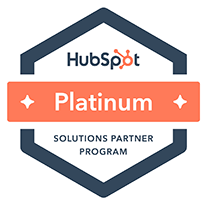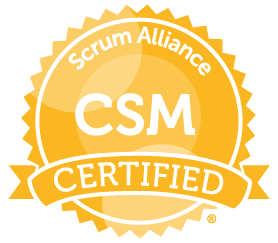- Why Go HubSpot?
Inbound is a more helpful and human approach to growing your business. It’s a method of attracting, engaging, and delighting people that provides value, and builds trust.
HubSpot's all-in-one marketing, sales, and service platform is built to help you implement inbound and grow better. It’s all powered by the same database, so everyone in your organization -- Marketing, Sales & Services -- is working off the same system of record. This allows for a smoother hand-off between Marketing, Sales & Services, and a more delightful experience for your customers. - Why HubSpot for Website?
HubSpot CMS is the first and only combined CMS and CRM that offers the ability to personalize your entire customer experience from the first visit to every single interaction afterwards. By using drag-and-drop modules, you can easily build or modify any page by yourself, optimize it for SEO, and access easy reports to see breakdowns of where traffic is coming from, bounce rate, and much more. - Why HubSpot for Email Marketing?
HubSpot is not an email marketing platform per se. Rather, it is a marketing automation platform integrated seamlessly with a CRM, giving you the ability to send different emails based on behavioural triggers and actions. You will get full visibility on how individual contacts are responding to your emails, which ad campaigns are bringing them back to your site and what actions are they taking in interacting with your site. Giving you the power to deliver timely and helpful value to your prospects; assisting them with their journey to make their decisions.
OK, so you've discovered that inbound marketing is the way to Grow Better your Revenue.
We’re an experienced team of business-minded marketers with a rare combination of performance-based strategy thinking, converting creativity, and technical proficiency all tied together with a can-do attitude to better service your companies' challenges and ambitious goals.
In short, clickTRUE is more than a digital marketing agency. We are a growth agency. So, you've got a challenge? Let's talk. You've got goals? We love them. We’re ready to rock it for you.
Our Services
- Marketing Strategy
- Inbound Marketing
- Paid Search & Social
- Analytics & Reporting
- Account-Based Marketing
- Creative Design
- Email and Lead Nurturing
- Marketing Automation
- Social Media Marketing
- Content Marketing
- Sales Enablement
- Video Marketing
Humans + Ai + Technology Partners = Awesome
We take your sales and marketing data, marry it with artificial intelligence from our technology partners and align it with your stated business goals. The aim - to produce recommendations to improve results from good enough to awesome. And in a structured, repeatable manner, of course.
















You're in good company
Hundreds and thousands of projects have been executed by clickTRUE's certified and award-winning consultants, designers and client success folks for some of the world's best companies ranging from mid to large sizes firms to nonprofits & startups. All in our backyard of Singapore, Malaysia and the rest of South East Asia.
















Have you checked out our Knowledge Base for our Ultimate Guides?
- The Ultimate Inbound Marketing Guide to Buyer Personas for Better Sales & Smarter Marketing
- The Ultimate Digital Marketing Guide for Small & Medium Businesses (< 100M Revenue)
Have a Question? Let us Help
- How does HubSpot work?
HubSpot covers all areas to grow your business: get new business opportunities (Marketing Hub), convert these opportunities to new customers (Sales Hub) and offer excellent service to have satisfied customers (Service Hub) who refer more new customers, thus closing the loop on what HubSpot calls the flywheel. These three hubs work on top of the HubSpot CRM so you have a single source of truth about your leads and customers. - How do the Marketing, Sales, and Service Hubs integrate with the CRM?
The free HubSpot CRM contains everything you need to organize, track, and build better relationships with leads and customers. Tools in the Marketing Hub help you grow traffic, convert more visitors, and run complete inbound marketing campaigns at scale. Time-saving sales tools in the Sales Hub help you get deeper insights into prospects, automate the tasks you hate, and close more deals faster. Customer service tools in the Service Hub help you connect with customers, exceed expectations, and turn them into promoters that grow your business. All the three Hubs integrate automatically and seamlessly with the HubSpot CRM. - How is HubSpot better than Mailchimp?
Mailchimp is a marketing automation and email marketing service, whereas HubSpot is a growth platform that combines marketing automation, email, and a suite of other flexible marketing tools with the power of a CRM to give you insight into how your marketing efforts are affecting your customer's experience across their entire buyer’s journey.
Mailchimp is a fantastic app that we recommend for anyone new to email marketing. It is free and easy-to-use. However, HubSpot is the better application for companies taking an integrated approach to marketing and sales – which is the best means of achieving lasting, consistent growth results. This is why many Mailchimp users graduate to HubSpot after a while. Sooner or later you would reach a point where you’ve achieved all you can with Mailchimp on its own, and additional tools are needed to maximise your results. Some users continue to use both HubSpot and Mailchimp, although in our opinion this isn’t necessary, as HubSpot has an excellent email marketing module.
- What is my contact limit if I subscribe to HubSpot Marketing Hub and HubSpot CRM?
The recommended basic combo of a Marketing Hub Starter (SGD 70/mth) on top of the CRM comes with 1000 contacts for you to send up to 5000 emails (5X contact) per calendar month.
Buy additional contacts at SGD $70/month* per 1,000 additional contacts to get more email sends. For example, with 4000 contacts, you will be able to send up to 20000 emails (5X contact).
Just be aware that if you are currently using the HubSpot Free CRM (unlimited contacts) and upgrades to one of the paid marketing software plans, the contacts in the CRM end up in both places, which could affect your marketing software plan’s contact tier pricing.
*discounts apply for higher volume - What is the yearly pricing for HubSpot Marketing Hub and HubSpot CRM?
You can subscribe to the basic combo of a Marketing Hub Starter (SGD 70/mth) and the free HubSpot CRM and pay monthly. But why do that when you can get a 20% discount by choosing the annual pricing of SGD 672. This works out to just SGD 56/mth for a best-in-class growth platform. - What is the difference between HubSpot's Marketing Hub Free and Marketing Hub Starter?
The main difference is that with Marketing Hub Free, you are limited to sending 2000 emails per calendar month versus the 5000 emails for Marketing Hub Starter. Buying more contacts will give you more email sending capacity per month - at 5X the number of contacts.
You will also miss out on being able to build Landing Pages, Ad Retargeting, creating more Smart Lists and building contact list audiences for your ads.
Upgrade to the Marketing Hub Starter at just SGD 70/mth to unlock these features. - What other fees do I need to be aware of other than the yearly subscription fees for Marketing Hub?
There are no other fees if you are comfortable with the subscription you have.
In fact, all Marketing Hub users (free and paid) have access to the HubSpot Community at community.hubspot.com for support. It is a vibrant channel to ask questions, find answers, and engage with professionals from around the world about HubSpot software best practices.
Users of Marketing Hub Starter also have access to email and additional in-app support options.
And if you need additional support, you can always chat us up to find out how our Inbound Marketing services can amplify the value of your Hubspot subscription.
Just be aware that if you are currently using the HubSpot Free CRM (unlimited contacts) and upgrades to one of the paid marketing software plans, the contacts in the CRM end up in both places, which could affect your marketing software plan’s contact tier pricing.




 hello@clicktrue.biz
hello@clicktrue.biz
 info.my@clicktrue.biz
info.my@clicktrue.biz info.th@clicktrue.biz
info.th@clicktrue.biz info.id@clicktrue.biz
info.id@clicktrue.biz info.vn@clicktrue.biz
info.vn@clicktrue.biz



